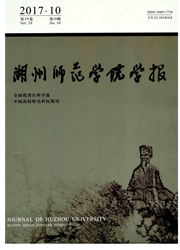

 中文摘要:
中文摘要:
《德意志意识形态》是马克思哲学思想发展过程中的一个极其重要的文本,是马克思历史唯物主义基本原理初步建构的标志性著作。在回答"生产什么"与"怎样生产"的问题中,马克思恩格斯通过对社会存在与社会意识关系的阐述,对费尔巴哈、鲍威尔、施蒂纳等德意志意识形态家们的唯心史观进行了深入批判,并在此基础上批判了当时在德国流行的"真正的社会主义"思潮,指出了这一思潮的虚假性。同时,马克思恩格斯在此阐述了唯物主义的实践特性,指出了人类解放是一个历史过程而非思想与观念活动的过程。进一步,马克思恩格斯指出了分工与私有制带来的人的异化以及生产力与交往形式的矛盾带来了社会历史的发展。《德意志意识形态》是马克思恩格斯初步建构其历史唯物主义基本原理的具体体现,是马克思恩格斯具体深入阐释生产力与交往形式的矛盾运动根源、本质与走向的一个坚实的思想奠基。
 英文摘要:
英文摘要:
The"German Ideology"is one of the most important texts in the development of Marx philosophy,and it is the landmark book for the preliminary construction of the basic principle of historical materialism.In the process of answering "what to produce"and "how to produce",Marx and Engels deeply criticized Feuerbach,Powell,Stirner’s historical idealism by elaborating the relationship between social consciousness and social existence.And based on the elaboration they disclosed the false socialist nature of Germany"real socialism"which was popular at that time.At the same time,Marx and Engels introduce the characteristic of materialism-practice,and they pointed out that the process of human liberation is a historical process rather than an ideological one.Marx Engels further pointed out that the development of social history was brought by human alienation caused by division of labor and the contradiction of productivity and communication."German Ideology"is the embodiment of Marx and Engels’ the preliminary construction of the basic principles of historical materialism,and it lays a solid ideological foundation for the elaboration of the root,nature and trend of the contradictory movement of productivity and communication.
 同期刊论文项目
同期刊论文项目
 同项目期刊论文
同项目期刊论文
 期刊信息
期刊信息
